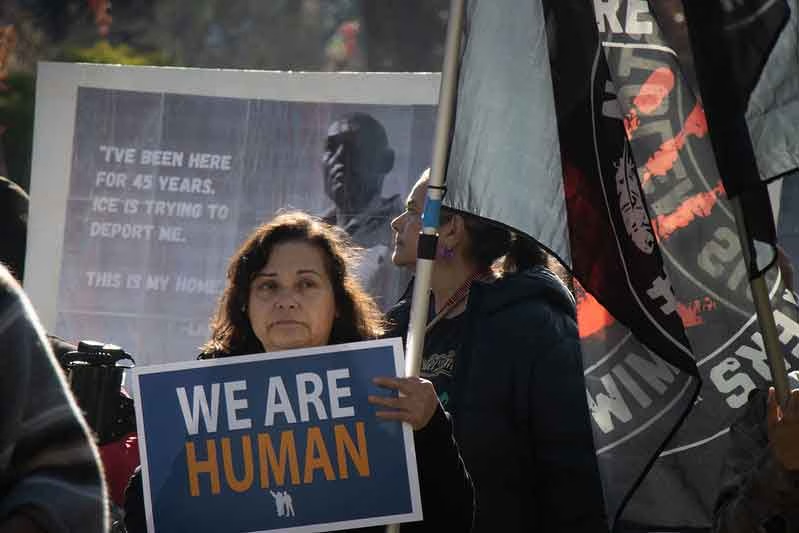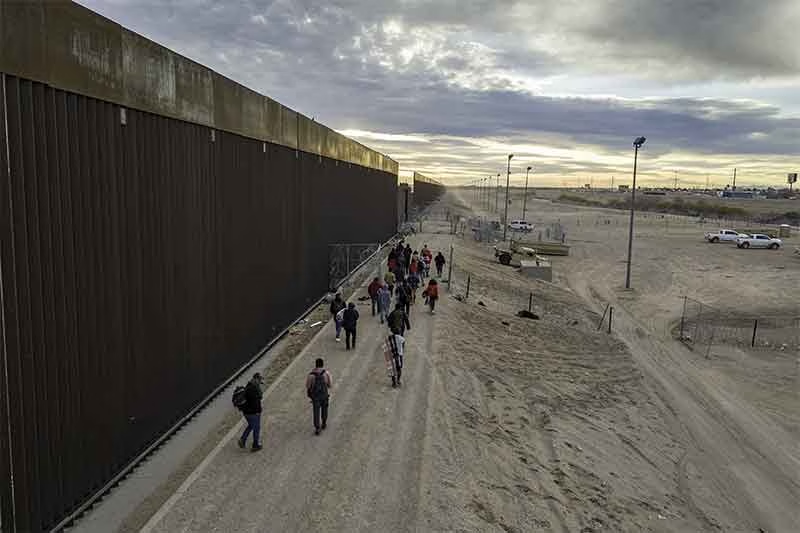
The recent deportation of Indian immigrants from the United States in a manner that involved shackling them in chains—binding their hands and feet—before transporting them on an American military flight is deeply disturbing. While it is true that these individuals may have attempted to enter the U.S. through unauthorized means, their actions were likely driven by desperation and hope for a better future. Seeking economic opportunities and security is an inherent human aspiration, and while the U.S. has the right to enforce its immigration laws, the method of deportation in this case was inhumane and indefensible.
Instead of ensuring that deportations were conducted with dignity and respect, the U.S. authorities subjected these individuals to cruel and degrading treatment. Chaining them like hardened criminals, denying them movement for over forty hours, and depriving them of basic needs such as access to restrooms reflect a shocking lack of humanity. The process could have been handled through diplomatic negotiations, allowing for a more humane approach to repatriation. Unfortunately, India’s response to this blatant mistreatment has been notably weak, especially when compared to the strong protests lodged by countries like Guatemala, Mexico, and Colombia when their citizens faced similar treatment. Rather than condemning the inhumane treatment of its own people, the Indian government has remained largely silent, failing to demand accountability from the U.S. administration.
What is even more troubling is the response from the supporters of the Indian government. Instead of expressing outrage at this gross violation of human dignity, many have sought to justify the U.S. government’s actions, arguing that illegal immigrants deserve such treatment. Some have even suggested that India should adopt a similarly ruthless approach in dealing with immigration issues within its own borders. This stance reflects a disturbing erosion of moral and ethical considerations in public discourse. It is ironic that the same voices that fervently promote nationalism and take pride in India’s sovereignty seem to conveniently ignore the dignity of Indian citizens when they are mistreated abroad—especially when the mistreatment comes from a country whose leader is perceived as an ally of India’s leadership.
Adding to this troubling pattern, the Indian government has recently removed tariffs on 30 American products, including electronics, textiles, and high-end motorcycles. While trade negotiations are a separate matter, the timing of this concession raises questions. It appears to be a one-sided gesture of goodwill, given that the U.S. continues to maintain stringent trade policies that favor American industries while limiting foreign competition.
Since Donald Trump’s victory and the rise of the “Make America Great Again” (MAGA) movement, the U.S. has taken a direction that increasingly contradicts its long-standing liberal economic and political values. The MAGA agenda is centered on economic nationalism, which prioritizes protecting American industries by imposing tariffs on foreign goods—effectively undermining the globalization that the U.S. once championed. It also emphasizes stringent immigration control, particularly along the U.S.-Mexico border, with policies designed to reduce illegal migration while promoting a merit-based legal immigration system. Furthermore, the movement is driven by the “America First” doctrine, which seeks to limit U.S. involvement in global conflicts and focus primarily on domestic interests.
While the movement does not explicitly endorse white racism, its rhetoric and policies have frequently appealed to white nationalist sentiments. Trump’s statements referring to Mexican immigrants as “rapists and criminals” and using the term “aliens” to describe immigrants have reinforced divisive narratives. His administration’s travel ban on citizens from Muslim-majority countries further solidified the perception that the movement aligns with discriminatory views. Additionally, racist attitudes toward Indians—including derogatory references to their hygiene and cultural practices—have surfaced among certain MAGA supporters, reflecting an underlying bias that persists within sections of American society.
The contrast between India’s passive response and the vocal resistance from other nations highlights a concerning trend. The lack of protest from the Indian government against the mistreatment of its own people abroad, combined with its willingness to extend economic concessions to the U.S., raises questions about its priorities. Is the leadership’s focus on maintaining a strategic partnership with the U.S. blinding it to issues of basic human rights? Have political alliances taken precedence over the dignity and well-being of Indian citizens?
Subscribe to Our Newsletter
Get the latest CounterCurrents updates delivered straight to your inbox.
The deportation incident, coupled with broader patterns of economic and diplomatic concessions, underscores the urgent need for a more assertive and principled foreign policy. If India truly values its standing on the global stage, it must ensure that the rights and dignity of its people are upheld—regardless of geopolitical alliances. Silence in the face of injustice only sets a dangerous precedent, diminishing the very essence of national pride and sovereignty.
T Navin is an independent writer















































